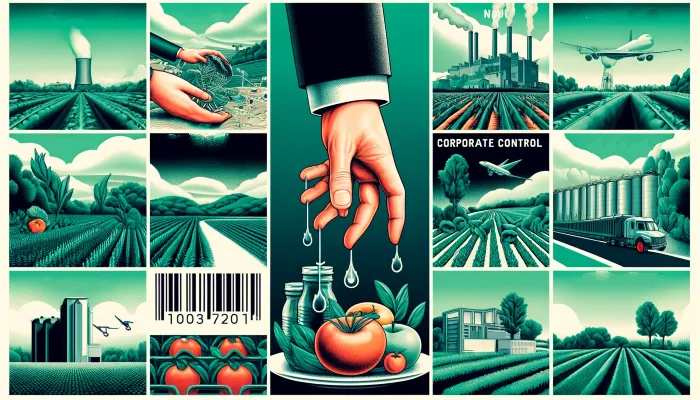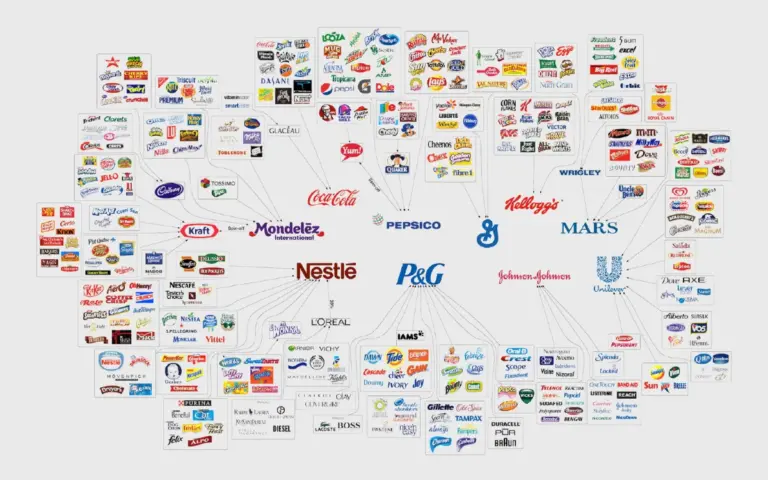The global food system is in dire need of transformation. Decades of industrial agriculture have caused widespread environmental and social damage, including soil degradation, loss of plant and animal species, and degraded landscapes. It’s clear that we must seek more sustainable and just ways of growing food and fiber.
One alternative gaining significant attention is regenerative agriculture.
But does it hold the key to fixing our food system?
Let’s delve deeper into this concept and explore various sustainable farming approaches to gain a comprehensive understanding.
The Challenges
Our current agricultural practices have led to alarming consequences.
Approximately 20-40 percent of the global land area is degraded, and agriculture has been responsible for 80 percent of recent deforestation and 70 percent of freshwater use. Furthermore, it is a major driver of biodiversity loss and greenhouse gas emissions.
Global corporations wield immense power, dominating the food system, while small-scale farmers struggle to compete in global markets, often going into debt to boost production.
Understanding Regenerative Agriculture
Regenerative agriculture, a term coined in the 1970s, encompasses farming practices that aim to improve landscape and ecological processes such as water, nutrient, and carbon cycles, rather than degrading them.
It has gained substantial traction, championed by multinational food companies, advocacy groups, and parts of the farming community.
But let’s explore whether regenerative agriculture alone can be the transformative solution our food system needs.
Comparing Sustainable Farming Approaches
To gain a comprehensive perspective, researchers conducted a multiyear study comparing regenerative agriculture with other sustainable farming approaches, such as organic agriculture, conservation agriculture, sustainable intensification, and agroecology.
Let’s take a closer look at their findings…
Regenerative Agriculture
Regenerative agriculture, like the aforementioned approaches, originated primarily in the rich, industrially developed Global North, including North America, Australia, New Zealand, and the United Kingdom.
However, it tends to overlook the rich Indigenous practices it draws from and neglects the needs of farmers in the Global South, perpetuating power inequality in the food system. There are also concerns that corporations might be using regenerative agriculture to “greenwash” their image, without making substantial changes to their existing systems.
Key Principles of Regenerative Agriculture:
- Integration of livestock into cropping systems
- Soil conservation and carbon sequestration
- Reduction of synthetic chemical inputs
- Promotion of biodiversity and ecological balance
Agroecology
Another promising sustainable farming movement is agroecology, which combines agricultural science (agronomy) with ecology. It not only focuses on sustainable food production, but also addresses injustices and inequities in food systems.
Agroecology places importance on Indigenous knowledge, land rights, and support for small-scale farmers. It seeks to challenge corporate dominance and neoliberalism in the global food system.
Main Benefits of Agroecology:
- Promotion of Indigenous knowledge and land rights
- Support for small-scale farmers
- Social and economic empowerment of communities
- Enhanced food security and increased household incomes
- Ecological sustainability and resilience
Understanding The Benefits
Agroecology brings numerous benefits to farmers and communities. For instance, a project in Chololo village, Tanzania, witnessed a significant positive impact.
The number of households eating three meals per day increased from 29 percent to 62 percent, while average household income rose by 18 percent. Moreover, the average period of food shortage decreased by 62 percent, and agricultural yields increased by up to 70 percent.
Finding The Path Forward
While regenerative agriculture has gained popularity and emphasizes sustainable food production, it falls short in addressing systemic social and political issues within the food system. Therefore, it may perpetuate the business-as-usual approach rather than leading to transformative change.
Recognizing that our food system encompasses diverse landscapes and cultures, regenerative agriculture can still play a role in supporting sustainable farming practices in certain settings, but it is not a catch-all solution.
To truly transform our food system, it is crucial to give due importance to equity, justice, and diversity.
Agroecology, alongside other sustainable farming approaches, deserves more attention and support.
By challenging corporate dominance, addressing power imbalances, and promoting sustainable consumption patterns, we can pave the way for a more equitable, resilient, and environmentally conscious food system.
More To Discover
- The Hidden Agricultural Heroes Powering Our Everyday Lives: Top 5 Genetically Modified Crops
- Unveiling the Path to Regenerative Agriculture: Addressing Concerns and Embracing Change
- Exploring Agrivoltaics: Harnessing Solar Power in Farming for Enhanced Mutually-Beneficial (Maybe) Sustainability
- Embracing Sustainable Farming Approaches: Cultivating a Greener Future
As we strive for a better food system, understanding and exploring sustainable farming approaches is crucial. While regenerative agriculture has gained prominence, we must also recognize the potential of agroecology and other alternative methods.
By embracing these approaches, promoting collaboration, and prioritizing systemic change, we can collectively work towards a future where sustainable farming practices lead to food security, ecological harmony, and social justice.




















